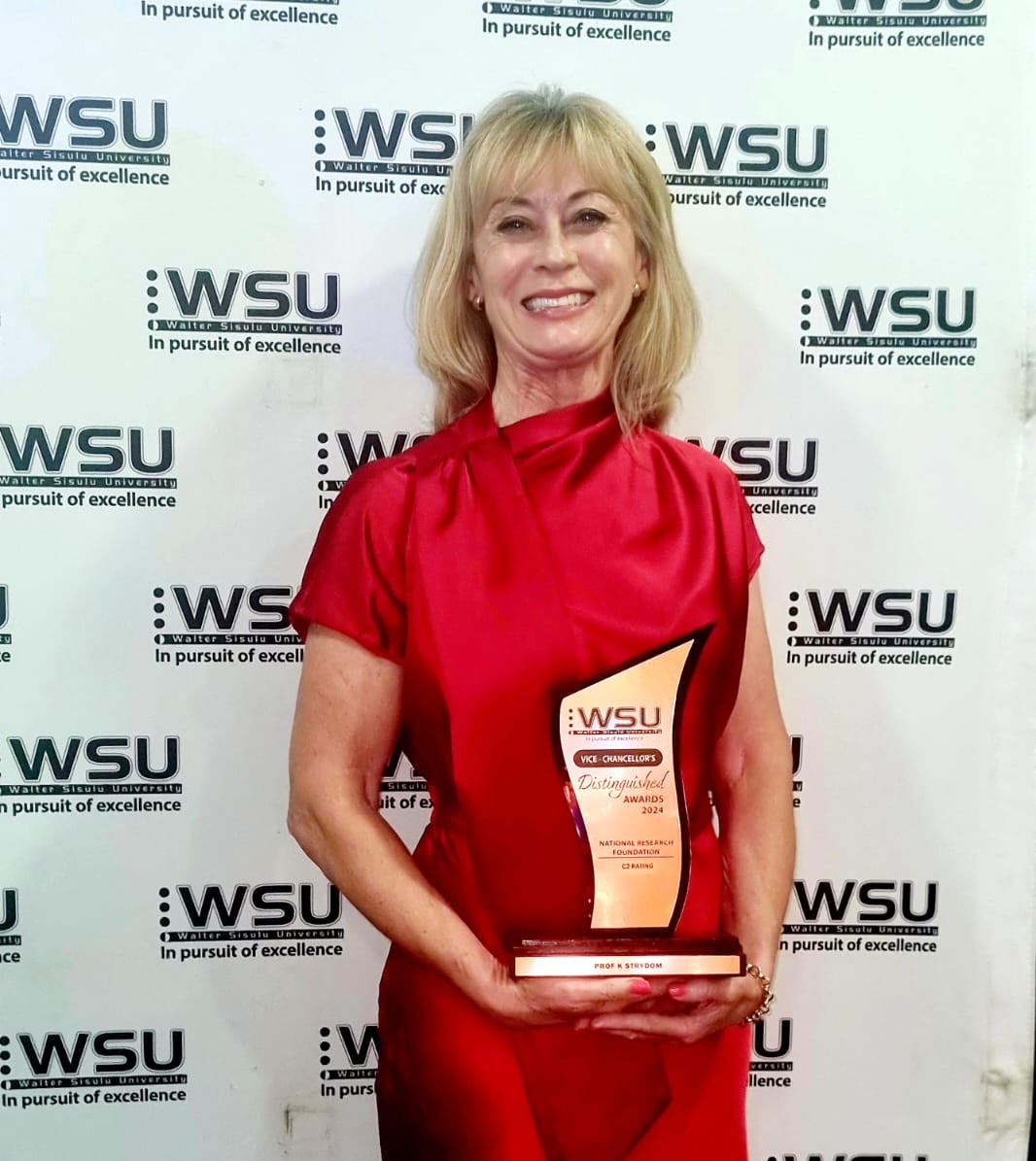WSU PROFESSOR ATTAINS COVETED NRF RATING

WSU’s Professor Kariena Strydom has become the first woman in the institution’s Faculty of Management and Public Administration Sciences to receive a National Research Foundation (NRF) Rating, a prestigious honour for South African researchers.
In recognition of her contributions to research centred around gender equality and women empowerment, Strydom obtained a C2 NRF rating, a feat awarded to researchers with a sustained track record in their research field.
The NRF hailed Strydom’s work for its ability to address issues of gender inequality in higher education through a nuanced, interdisciplinary view that interlinked social sciences, business, and economics.
Strydom joins a string of WSU NRF rated researchers, cementing the institution as a hub of academic excellence and impactful research.
“My NRF rating enhances WSU’s academic reputation by positioning the institution as a key contributor to gender equity research. It signals to the broader academic and policy communities that WSU produces impactful research with both theoretical and practical implications. Additionally, international collaborations strengthen WSU’s global presence, opening opportunities for further partnerships and research engagements,” said Strydom.
Since joining WSU in 2009, Strydom has laboured tirelessly to advance her academic and research contributions, particularly addressing gender disparities in higher education and governance structures.
The scholar’s contributions to research have not only been able to provide a comprehensive understanding of gender issues, but have also influenced decision-making processes, particularly in developing strategies for women's empowerment and leadership development.
Strydom asserted that systemic barriers such as limited access to mentorship, unconscious bias, and institutional cultures that do not fully support gender inclusivity, remained major hindrances for women’s advancement in higher education leadership.
These inequalities, according to the researcher, were further exacerbated by economic disparities, gender-based violence, and challenges related to work-life balance.
Offering solutions to some of the challenges faced by women in academia, Strydom said, “Urgent interventions should focus on establishing mentorship and sponsorship programs specifically designed for women, as well as investing in leadership development initiatives like a Future Professors Program.”
“Additionally, increasing targeted research funding for female academics can encourage their participation in high-impact projects. Embedding gender studies and diversity management into academic programs will raise awareness and equip future leaders with inclusive perspectives.”
Although the scholar has broken glass ceilings in academia, she admitted that it had been challenging to penetrate established research networks which were predominantly male.
“I overcame this obstacle by actively pursuing international collaborations and building relationships with scholars who share similar research interests. Balancing research, teaching, mentorship, and personal responsibilities has also been demanding. Strategic time management, persistence, and resilience have been essential in my journey,” she said.
Currently, Strydom is involved in a collaborative research project funded by the British Academy, in partnership with the University of Johannesburg and the University of Greenwich in the United Kingdom, aimed at unearthing strategies to advance women into leadership positions within higher education.
“I would encourage aspiring female researchers to build strong networks, seek mentorship, and actively pursue opportunities for collaboration. It is important to be strategic in choosing research topics that have both academic and societal relevance to ensure long-term impact. Being resilient in the face of challenges, continuously developing research skills, and proactively seeking funding opportunities will help you advance,” Strydom advised.
By Yanga Ziwele
